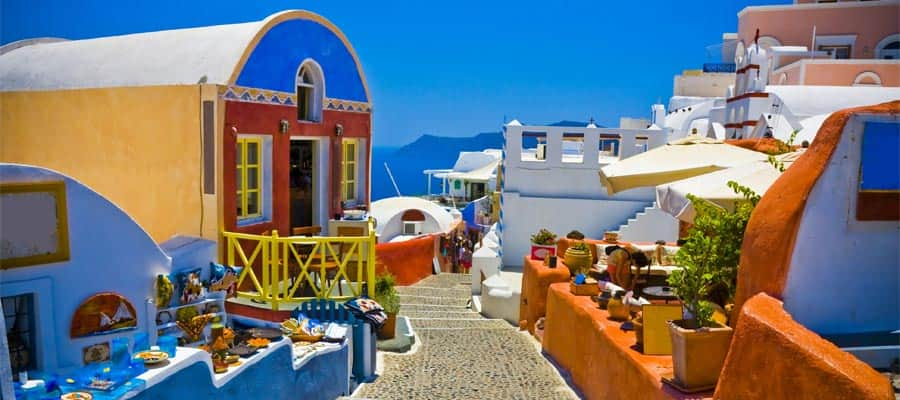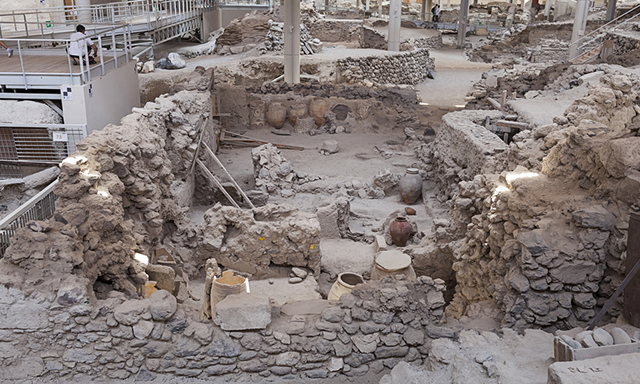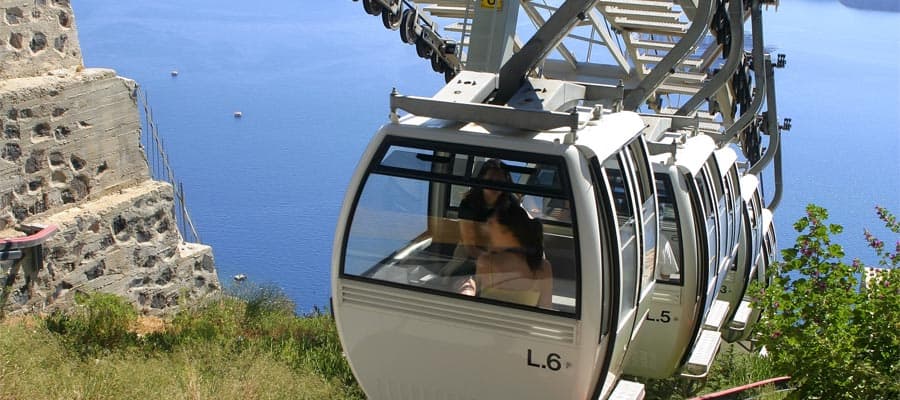Port of Call: Santorini, Greece

Colorful streets of Santorini (photo courtesy of www.ncl.com).
Take in the picturesque sights and local sounds of Santorini, Greece. Formed by a series of volcanic eruptions over thousands of years, this port has turned a series of catastrophes into the “crown jewel of Greece.”
Santorini crater

Overlooking the Santorini caldera, or crater (photo courtesy of www.royalcaribbean.com).
Santorini is an extraordinary island. A volcanic eruption occurring around 1650 B.C. caused the island’s center to implode into the sea, destroying civilizations and forming a huge water-filled crater. Some believe this reservoir to be the famous Lost City of Atlantis—the mythical land that sunk into the sea after the gods were angered by the city. Guests can explore hot springs rumored to have healing properties and water in hues ranging from green to deep orange.
Village of Oia

Famous blue domed churches in Oia, Greece (photo courtesy of www.ncl.com).
At the northern edge of the island lies the charming village of Oia, known for its architecture, cobblestones, whitewashed buildings, and blue-domed churches. Stroll through the narrow streets and take in the natural beauty and tranquility that has inspired artists from around the world. Enjoy a drink and traditional Greek dinner while watching the sun sink into the crater.
Museum of Prehistoric Thira

Ancient Akrotiri Ruins (photo courtesy of www.celebritycruises.com).
The Museum of Prehistoric Thira was built upon the site of an old church destroyed in an earthquake in 1956. Here, visitors can gaze upon a large number of artifacts from various excavations on Santorini, such as the Akrotiri—a settlement destroyed by a volcanic eruption in 1627 B.C. —and the Potamos excavations. Relics here date back several thousand years and offer insight into early life on the Greek islands.
Fira

Cable cars in Fira, Greece (photo courtesy of www.ncl.com).
Fira, the island’s capital, sits perched among a cliff on the island’s edge. Boasting stunning views of Cycladic and Venetian architecture, visitors can wander through the town square, “Plateia Thetokopoulou,” or climb aboard the aerial cable cars before exploring the town’s shops and cafés. The Archaeological Museum located here contains Minoan artifacts from the village’s ancient foundations.





